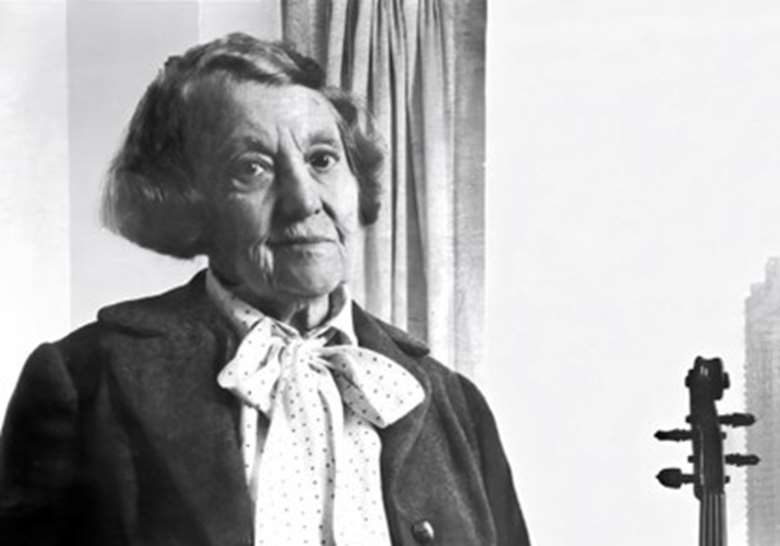Celebrating Lillian Fuchs on her birthday
Hattie Butterworth
Thursday, November 17, 2022
Looking at the life, compositions and recordings of American-Jewish violist, Lillian Fuchs

Lillian Fuchs from the Tully Potter Collection
If I mention the legacy of a prolific female viola player and composer at the start of the 20th century, your mind may skip to British violist Rebecca Clarke. But across the pond was a similarly fiery violist from a musical Jewish family whose contribution to recording and viola repertory made its mark on American musical life.
Who was Lillian Fuchs?
Born 15 years after Clarke on 18 November 1901, Lillian Fuchs studied and then taught at New York’s Institute of Musical Art (now Juilliard School) and developed what would become one of the standard-use viola methods and etudes, appreciated at their inception by violist William Primrose and still widely regarded today.
Much of Lillian Fuchs’s life was dedicated to recording, making numerous chamber music records with her brothers, the violinist Joseph Fuchs and cellist Harry Fuchs. Sadly, few of these are available today other than as collector’s items. A wonderful exception is her 1950’s recording of the Six Bach Cello Suites, her own arrangement of which was said to have stunned the cellist Pablo Casals. He famously declared, after a private performance of the Sixth Suite by Fuchs, that he preferred it played on the viola to the cello.
Pioneering works and recordings
On listening to this remarkable recording, I can certainly appreciate what Casals meant. Fuchs has a roundness of sound and freedom within the Sixth Suite that can be the struggle of many cellists tackling a piece written for five strings. The force of her interpretation may be criticised by some Bach scholars, as well as the use of audible slides, but her performance gives us such an exciting example of earlier Bach Cello Suite recordings.
As a composer, her Sonata pastorale for solo viola, composed in 1956, is wonderfully idiosyncratic. I was expecting a Rebecca Clarke-style bucolic lilt, but was instead struck with a work of serious experiment. Maybe even comparable to the solo violin sonatas of Eugène Ysaÿe, the work moves through periods of modality to others of dark dissonance. A wonderful recent recording has been made by violist Marina Thibeault, who interestingly places Fuchs’ sonata straight after Rebecca Clarke’s on their album of viola music written by women.
Collaboration and esteemed tutelage
Fuchs's life was marked by some wonderful collaborations, in addition to extensive work with her brothers and Pablo Casals. Martinu’s Sonata for Viola and Piano and Quincy Porter’s Duo for Viola and Harp were both written for Fuchs. Her teaching was invaluable, becoming an important chamber music coach at Juilliard and Manhattan Schools of Music in the late 20th Century, with pupils including Isaac Stern, Pinchas Zukerman and Dorothy DeLay.
The similarity to Clarke is probably only a superficial comparison, although both women lived remarkably long lives, with Fuchs dying aged 92 and Clarke at 93. The fascinating and important contribution of both women has undoubtedly increased recognition of the viola as a solo instrument. Their lives of dedication require continued celebration.







